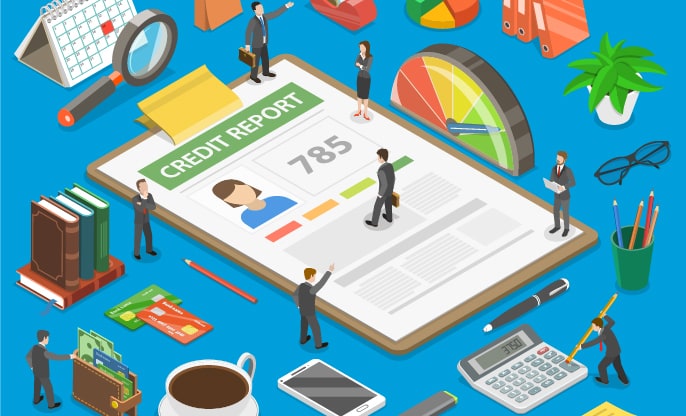What Is A Credit Score?
If you were lending money to someone you didn’t know, what would you want to know about that person? Probably the same things potential lenders ask about you: How much do you earn? What do you do for a living? How long have you had your job? Do you own a home or rent? How often do you move? Do you pay your bills on time?
When you apply for credit or a loan, the potential lender turns to a credit bureau for answers to these questions. The credit bureaus assign you a numerical score ranging between 300 and 850 that corresponds with your risk as a borrower. The lower your score, the more risky it might be to lend money to you. A higher score indicates that you are a lower risk for an institution to lend money to you.
What kind of information is contained in a credit report?
The credit bureau’s report normally includes four kinds of information:
Identifying information. Your name, current and previous addresses, Social Security number, date of birth, and current and previous employers. This information comes from the credit applications you fill out, so be sure to complete all applications clearly, completely, and consistently.
Credit information. Every account you have or have had within the past few years, the date opened, credit limit or loan amount, balance, monthly payment, and payment pattern. The companies that give you credit or lend you money supply this information. Negative information may remain on your report for up to seven years.
Public record information. Federal district bankruptcy records, state and county court records, tax liens and monetary judgments. Some states also report overdue child support payments. This information comes from public records. Bankruptcy reports remain in your file for ten years.
Inquiries. The name of anyone who has asked for a copy of your credit report. The credit bureau supplies this information, and it can remain available for as long as two years.
How Do I Obtain A Copy of My Credit Report?
To obtain a copy of your credit report, visit www.annualcreditreport.com. This is the only website endorsed by the Federal government to provide FREE annual credit reports. Beware of other sites that say that they do so and then charge a fee. You are entitled to ONE free credit report from EACH of the THREE credit bureaus (Equifax, Experian, TransUnion) ANNUALLY.
Improving Your Credit Rating
If you’re starting from scratch or trying to repair a poor rating, start small. Get a credit card that is easy to get, perhaps one from a retail store or gas company, or get a secured credit card by depositing money with the issuer. Use the card and pay your bills on time. Add other credit or loans gradually, in small increments.
Don’t apply for loans you can’t qualify for. Every time someone checks your credit record, the credit check is noted in your record, too. If a lot of potential lenders have checked your report in a short period of time, other lenders will wonder why you’re trying so hard to go into debt.
Don’t keep credit cards with high limits that you don’t use. Potential lenders see open lines of credit as an opportunity for you to go on a shopping spree and go deeply into debt.
Pay your bills on time. Pay your bills on time. Pay your bills on time. Have we made our point?
